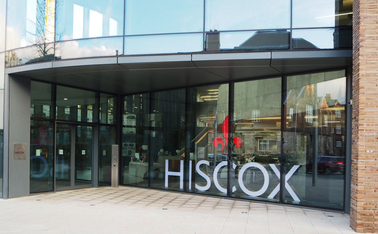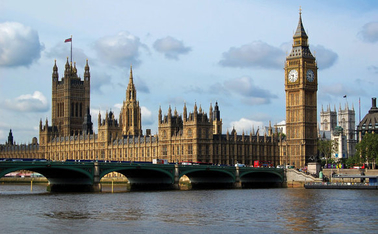
Biba defends broker earnings after FCA overhaul in property commissions

The British Insurance Brokers’ Association backed changes the Financial Conduct Authority wants to improve transparency for leaseholders, while also defending broker earnings.
Brokers are facing an overhaul in customer reporting and profit sharing in the buildings’ insurance market after the FCA released a report on Friday last week showing widespread market failure.
The four changes that the FCA are to enforce are:
- Interests leaseholders are properly considered when firms design their products;
- Prices are fair value to leaseholders as well as freeholders;
- Remuneration of all parties involved in insurance distribution has a fair relationship to the benefits provided to leaseholders;
- Leaseholders have sufficient information to challenge poor practices and unfair costs passed on to them.
Following the release of the report and the FCA demands for change, Biba leapt to brokers’ defence.
Biba stressed that its real estate members already pledged to provide fair value.
We note that the FCA confirm that most brokers provide appropriate information about the policy, and nature of their remuneration to their customers today. We contend that any increase in commissions in the review period is not the primary driver for increased premium costs on leaseholders.
Biba
The trade body agreed leaseholders should also be ‘partial beneficiaries’ in the building insurance contract.
Biba said: “We will work with members to enable full disclosure of information to leaseholders via the freeholder.
“We note that the FCA confirm that most brokers provide appropriate information about the policy, and nature of their remuneration to their customers today.
“We contend that any increase in commissions in the review period is not the primary driver for increased premium costs on leaseholders.”
According to Biba, its members are already adjusting their practices to stop sharing of commission with property managing agents, freeholders and landlords.
The trade body has also pioneered a reinsurance scheme with the ABI to provide an answer affordability and risk capacity for impaired buildings.
The FCA wants response to its report by June, with the changes implemented by the end of the year.
Leaseholders as ‘customers’
Biba agrees with the FCA that when it comes to leaseholders, it is ‘virtually impossible’ for insurance firms to comply Insurance Conduct of Business Sourcebook rules where insurance is arranged for a multi-occupancy property.
Leaseholders are not currently considered part of the customer relationship when insurance is arranged for buildings.
Biba said ICOB rules should not be extended to leaseholders in the book, and instead argued: “We believe that a good approach would be to treat leaseholders as ‘partial beneficiaries’ to the insurance contract in accordance with existing FCA rules. In other words, bring leaseholders within the definition of ‘beneficiaries’ that exists currently in the Glossary to the FCA Handbook.
“This would provide them with the transparency and information needed.”
Remuneration and fair value
Biba said commissions increased at a lower rate than premiums for the period the FCA studied from January 2019 to September 2022.
The increase in average broker commission accounts only for 20% of the increase in gross premiums written, Biba noted.
Biba said: “We contend that the increase in commission earnings is not the primary driver of increased insurance costs being paid by leaseholders.
“The report does not acknowledge the fact that work being done by brokers to place these sometimes very difficult risks with complex reinsurance arrangements has increased substantially.
“Indeed our members tell us that very few insurance placements of multi-occupancy buildings are simple anymore, with each one taking more time than it used to resulting in further increased costs for the broker.”
The trade body detailed that the FCA is not seeing to ban or cap commissions.
Commission
The regulator has been pushed hard by the government to solve the rising prices in buildings’ insurance following the Grenfell disaster in 2017.
Insurers hiked prices amid fears that cladding-cloaked buildings present a fire risk.
The FCA provided evidence that part of the rising costs to leaseholders comes from brokers taking ‘high’ commissions, which they share out to others in the property chain such as freeholders and property managing agents.
The FCA says £80m was shared out by brokers to third parties during the study period.
In January 2023 the Department for Levelling Up, Housing and Communities announced it would bring forward legislation to prohibit the sharing of commission with property managing agents, freeholders and landlords for the work they do to administer insurance arrangements.
The FCA report also highlighted broker earnings, but Biba stressed that commissions would reduce in line with softer marker pricing.
The FCA also collected data on how much brokers earn in commission against staff costs.
For example, FCA data collected showed aggregate broker retained remuneration was above £50m, while staff costs were below £30m.
However, Biba stressed this did not include indirect costs.
Biba added: “Inflation is at its highest point in 30 years and the cost of compulsory professional indemnity insurance for brokers has increased significantly which means that brokers need to earn more to cover their costs.”
Biba blames government
Biba warned that it was a serious omission in the report not to highlight Insurance Premium Tax as a driver of harm in these cases.
The FCA report notes that average premiums have increased from £7,470 in 2019 to £11,625 in 2022. It follows that IPT earnings by Government have increased significantly with Government providing no value to the distribution chain or leaseholders.
“Our 2023 Manifesto calls for a specific IPT exemption for cladded buildings undergoing or awaiting remediation and we ask strongly that this be reconsidered,” Biba said.
For all the latest industry news direct to your inbox, sign up for our daily newsletter.
Only users who have a paid subscription or are part of a corporate subscription are able to print or copy content.
To access these options, along with all other subscription benefits, please contact info@insuranceage.co.uk.
You are currently unable to print this content. Please contact info@insuranceage.co.uk to find out more.
You are currently unable to copy this content. Please contact info@insuranceage.co.uk to find out more.
Copyright Infopro Digital Limited. All rights reserved.
You may share this content using our article tools. Printing this content is for the sole use of the Authorised User (named subscriber), as outlined in our terms and conditions - https://www.infopro-insight.com/terms-conditions/insight-subscriptions/
If you would like to purchase additional rights please email info@insuranceage.co.uk
Copyright Infopro Digital Limited. All rights reserved.
You may share this content using our article tools. Copying this content is for the sole use of the Authorised User (named subscriber), as outlined in our terms and conditions - https://www.infopro-insight.com/terms-conditions/insight-subscriptions/
If you would like to purchase additional rights please email info@insuranceage.co.uk







